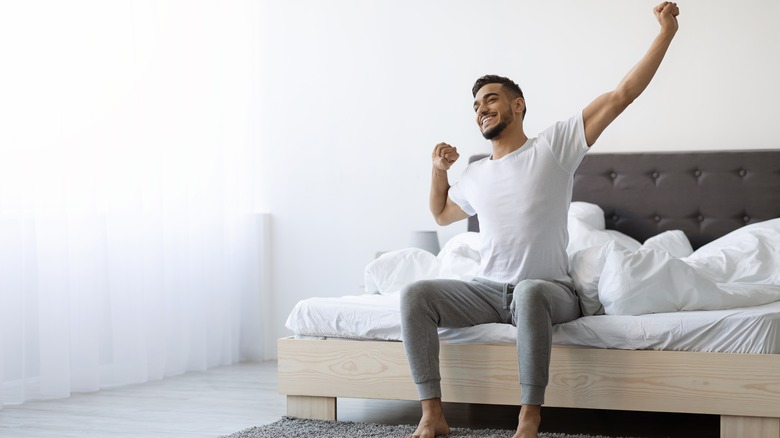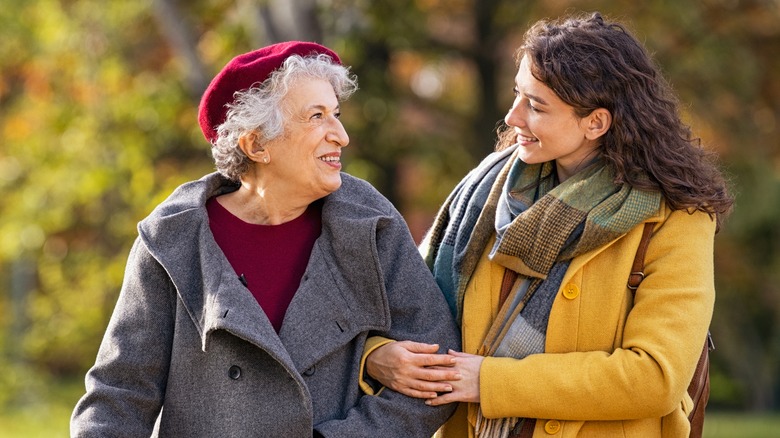Can Seeing More Daylight Lead To Better Sleep?
As you grab that second cup of coffee and head out the door, your perky neighbor waves as he comes back from walking the dog. He doesn't have coffee, but he seems to have more energy. According to WebMD, that 15-minute dog walk can not only get your heart pumping and body moving in the morning, but the extra daylight can also help you sleep at night. Once your eyes take in some morning light, your brain shuts off melatonin production. It also resets your internal clock to produce melatonin again in roughly 14 hours.
According to a 2021 study in Lighting Research & Technology, the more light around you during the day, the better sleep you'll have each night. More light throughout the day — indoors or outdoors — also leads to reduced stress and a better mood. The study suggested that you can reap these benefits by getting outside one or two hours a day, or spending time in a bright room indoors. WebMD suggests facing a window, if possible.
It's best to get most of your light in the morning or daytime, though, because a 2019 systematic review in Sleep Health found that more light in the evening can interfere with your sleep. That's because light stimulates you like coffee, according to WebMD.
Light therapy can benefit your health
Research has looked at the effect of light therapy on older populations. A 2004 study in Sleep and Biological Rhythms studied 459 postmenopausal women and found that exposure to light throughout the day improved their mood and sleep.
Some studies have looked at artificial light as well. A 2023 systematic review in the Journal of the American Medical Directors Association found that as little as 30 minutes of light therapy in the morning can improve sleep in older adults living in long-term settings. However, different light intensities and duration will have different effects.
Over time, spending more time in the daylight can benefit your health. A 2021 study in the Journal of Affective Disorders looked at how much time 400,000 people in the United Kingdom spent outdoors. With each hour spent outdoors in daylight, people were less likely to have a major depressive disorder, use antidepressants, have symptoms of insomnia, and experience anhedonia (inability to feel pleasure). They also found it easier to wake up each day and felt less tired.
To get a little more light each day, aim for at least 15-30 minutes of daylight in the morning and a little more in the afternoon when your body produces a little melatonin (via WebMD). Try to get at least an hour of sunlight each day. In the evening, dim displays or use night mode on your devices two hours before bedtime. It also helps to keep the same sleep schedule each day, even on weekends.


